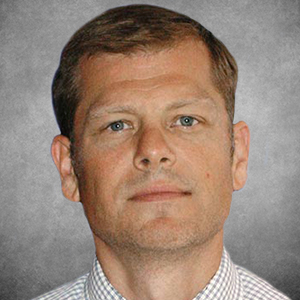Leadership & Management Section Chair
Bradley Kuch
Director, Transport Team and Respiratory Care Services, Clinical Research Assoicate
UPMC Children’s Hospital of Pittsburgh
Member Since: 2004
AARC Activities:
- Board of Directors – 2019 -2021
- Neonatal – Pediatric Section Chair – 2019 – 2021
- AARC Liaison to ELSO – 2017 – Present
- AARC Disaster Ventilator Workgroup (Human Resource Issues) – 2006
- AARC Transport Section Member – 2004 – Present
- 2008 – Surface and Air Transport Specialty Practitioner of the Year
- AARC Neonatal/Pediatric Section Member – 2007- Present
- AARC Management Section Member – 2012 – Present
Affiliate Activities:
- Co-Chair Pennsylvania Respiratory Research Collaborative 2017 – 2018
- Pennsylvania LARS Steering Committee 2020 – present
- Neonatal Pediatric Specialty Care Team Utilization Work Group: Association of Air Medical Services
- ELSO Member – Worked to Develop a Computer based ECMO Simulator
Related Organizations:
- Adjunct Educator: Pediatric Respiratory Care; Indiana University of Pennsylvania/ Western Penn Hospital – 2002 – 2017
- Site coordinator for the Pediatric Acute Lung Injury and Sepsis Investigators project entitled “Weaning Pediatric Patients from Mechanical Ventilation: A Comparison of Two Weaning Protocols to Standard Practice”
- Site Coordinator for the Congenital Cardiovascular Interventional Study Consortium (CCISC) project entitled “Comparison Between Surgical vs. Balloon Angioplasy vs. Intravascular Stent Placement for Recurrent or Native Coarctation of the Aorta”
Education:
- 1992 – 1998 Gannon University Erie, Pennsylvania Bachelors of Science, Respiratory Care
- 2012 – 2014 Ohio University Athens, Ohio Masters in Health Care Administration (MHA)
Publications:
- Kuch BA: Bioinstrumentation – Respiratory Monitoring and Instrumentation. In: Hazinski MF eds. Manual of Pediatric Critical Care. 2010, Elsevier Health Sciences
- Kuch BA, McSteen MF: Initial Stabilization and Transport of the Critically Ill Neonatal or Pediatric Patient. In: Slota P eds. Core Curriculum for Pediatric Critical Care Nursing. 3rd ed, Philadelphia, PA, 2018, W.B. Saunders.
- Kuch BA, Bochkoris M: Triage and Transport of Infants and Children with Cardiac Disease. In: Munoz R, Morell V, Weardon P, Da Cruz E eds. Handbook of Pediatric Cardiac Intensive Care. London, United Kingdom, 2018, Springer-Verlag
- Sarnik A, Venkataraman S, Kuch BA: Mechanical Ventilation in Infants and Children. Cham, Switzerland, In Print. Springer Nature AG.
Elections Committee Questions:
What do you see as the biggest challenge facing the AARC and what do you recommend to address it?
The greatest challenge we as an organization face is growing the profession of respiratory care to keep up with the ever-increasing demand. Currently, California is the only state with an ample number of respiratory therapists. Almost all other states have more openings than graduating respiratory therapists, adding stress to the current practicing therapist. This coupled with low enrollment rates at respiratory care programs has created a difficult situation.
To address this this issue, I would recommend a three-prong approach that would include the following.
- Marketing of the profession – create and implement a nation-wide marketing campaign focus on high school and undeclared college students.
- Recruitment taskforce – create a recruitment task force use representative from the NBRC, COARC, Education, and Leadership/management section.
- Membership Engagement Survey – surveying the membership would help us understand the expectations of the membership.
Healthcare is changing more rapidly than ever. What do you feel is the main issue Respiratory Care Practitioners are facing, and what are the key solutions that you feel should be addressed to support our profession?
A significant issue that Respiratory Care Practitioners face is chronic burnout. The phenomenon of health care worker burnout is not new, but has been thrust front and center secondary to the COVID-19 pandemic. To address burnout, we must focus on adequate staffing, emotional support of the respiratory therapist, and make work life balance a priority, not for us personally but our peers as well. This need to be stressed on a hospital, as well as a national level. We as an organization can assist by developing best practice tools/resources and ensuring they are provided to the front-line leader. By supporting one another we can lessen the emotional burden of burnout.
Role-Specific Questions:
Value of section membership is important. If given the opportunity to represent, what would be some steps you would take to continue to increase the value of section membership and gain further engagement of section members?
My goal for the Section would be to provide resource(s) for the membership while increase opportunities for mentorship and committee development. I would use transformational leadership philosophies to grow the section membership’s voice, thus driving opportunity and growth. I also feel that we need to grow our young Leaders. One of my first charges – if elected would be to convene a Young Leader Council, to identify and understand the current challenges they face in their current environment. The information collected from this council would be helpful to grow the LARS program, while creating value for the entire Section.







